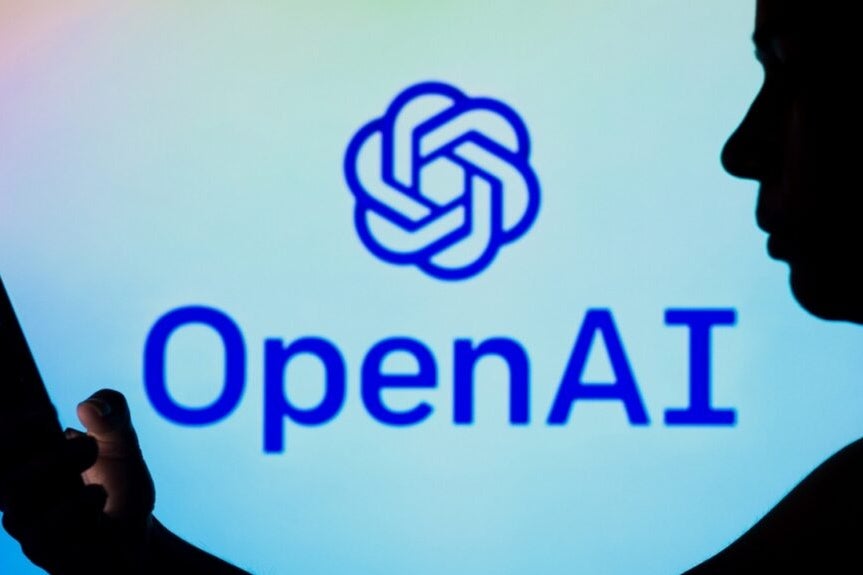OpenAI’s Bold Accusation: DeepSeek’s Unauthorized Use of Proprietary AI Models
In a significant turn of events within the tech landscape, OpenAI has made bold accusations against DeepSeek, claiming that the latter has engaged in the unauthorized use of its proprietary AI models. This revelation not only raises serious questions about intellectual property rights but also sparks an investigation by Microsoft, which is concerned about potential AI security risks. This situation serves as a stark reminder of the ongoing challenges surrounding ethical AI usage and the protection of innovative technologies.
The Allegations Against DeepSeek
OpenAI, a leader in artificial intelligence research and development, has accused DeepSeek of leveraging its proprietary models without permission. According to OpenAI, DeepSeek’s actions constitute a breach of trust and an infringement on their intellectual property. This accusation underscores a growing concern over how proprietary technological advancements are safeguarded in an increasingly competitive market.
DeepSeek, a burgeoning player in the AI field, has fervently denied these allegations. The company claims that its technology is independent and developed through its own research. This dispute highlights the complexities involved in distinguishing between legitimate innovation and infringement in the world of AI. As businesses race to develop cutting-edge technologies, the lines between inspiration and appropriation can sometimes blur.
Microsoft’s Role in the Investigation
In light of OpenAI’s serious allegations, Microsoft has stepped in to launch its own investigation. As a major investor in OpenAI and a significant player in the AI sector, Microsoft has a vested interest in ensuring that its technological partnerships are built on a foundation of trust. The investigation aims to clarify the situation surrounding DeepSeek and assess any potential risks associated with AI security.
Microsoft’s involvement is particularly noteworthy given its commitment to ethical AI practices. The company has been vocal about the importance of transparency, accountability, and responsible usage of AI technologies. By investigating these allegations, Microsoft is sending a clear message that it takes the protection of intellectual property seriously.
The Implications of Unauthorized AI Usage
The implications of unauthorized use of proprietary AI models can be far-reaching:
- Legal Consequences: Companies found guilty of infringing on intellectual property rights can face legal actions, including fines and injunctions.
- Reputational Damage: Allegations of misconduct can tarnish a company’s reputation, affecting partnerships and customer trust.
- Market Competition: Unauthorized usage can lead to an uneven playing field, where companies that invest in research and development struggle against those that do not.
- Ethical Concerns: The ethical implications of AI usage become increasingly significant as concerns about data privacy and algorithmic bias persist.
As the tech industry continues to evolve, these concerns become more pressing, raising the need for robust frameworks and policies that can govern the usage of AI technologies.
The Growing Concern Over Intellectual Property in AI
This incident is not an isolated occurrence but part of a broader trend in the tech industry where intellectual property rights are under scrutiny. As AI technology advances rapidly, so does the potential for infringement. Companies are increasingly finding themselves embroiled in disputes over the ownership of algorithms, models, and data.
Moreover, the nature of AI development often involves using vast datasets for training models, which can complicate matters of ownership and consent. As organizations strive to innovate, they must navigate the tricky waters of ensuring that their advancements are ethically and legally sound.
The Importance of Ethical AI Usage
In this context, the notion of ethical AI usage becomes paramount. Companies must consider the broader impacts of their technologies and ensure that they are not only compliant with legal standards but also aligned with ethical norms. This means being transparent about data use, responsible in model training, and fair in deployment.
Organizations, especially those in the AI sector, should prioritize the following practices:
- Transparency: Clearly communicate how AI models are developed, trained, and used.
- Accountability: Establish frameworks for accountability regarding the decisions made by AI systems.
- Diversity: Ensure diverse data sources to minimize bias in AI models.
- Collaboration: Work collaboratively with other organizations to share best practices and insights.
By adopting these principles, companies can foster a culture of ethical innovation that not only protects their interests but also contributes positively to society.
Looking Ahead: The Future of AI and Intellectual Property
As the investigation into DeepSeek unfolds, it serves as a critical case study for the AI community. The outcome will not only affect the parties involved but could also set precedents for how intellectual property issues are handled in the future.
With AI technology poised to play an even more significant role in various sectors—from healthcare to finance—addressing these challenges is crucial. Stakeholders must engage in open dialogues about the ethical implications of AI, ensuring that the industry evolves in a responsible manner.
In conclusion, OpenAI’s bold accusation against DeepSeek has put a spotlight on the intricate dynamics of intellectual property in the AI landscape. As Microsoft investigates these claims, the tech community watches closely, recognizing the importance of safeguarding innovation while fostering an ethical approach to AI development. The stakes are high, and the lessons learned from this incident could shape the future trajectory of AI technology and its governance.
See more Future Tech Daily

